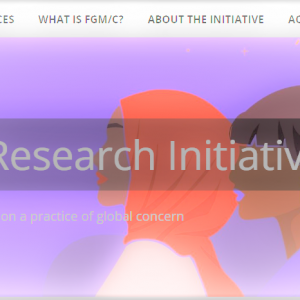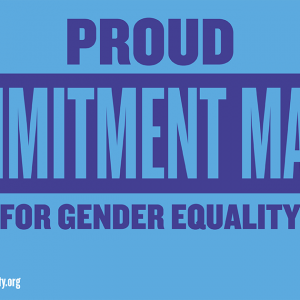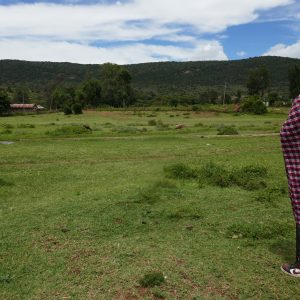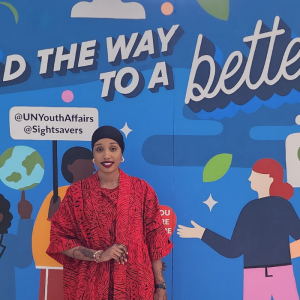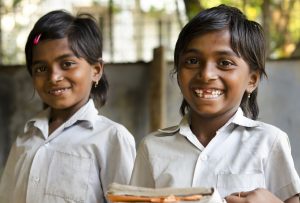 Orchid Project is calling for greater research and evidence outside the 30 countries that currently report national data on female genital cutting (FGC) prevalence for women aged 15-49
Orchid Project is calling for greater research and evidence outside the 30 countries that currently report national data on female genital cutting (FGC) prevalence for women aged 15-49
- There should be increased reporting from UN member states on Sustainable Development Goal (SDG) indicator 5.3.2 relating to FGC to reflect the global scale of the issue
- There is a critical need to invest in continued research that assesses the effectiveness of interventions aimed to encourage abandonment of FGC
- Event in partnership with Orchid Project and international research organisation Population Council, “From Evidence to Action: Partnering to End FGM/C”, at 62nd CSW in New York City will see welcome remarks from Secretary of State, the Rt Hon Penny Mordaunt MP, Department for International Development, UK, State Secretary Jens Frølich Holte, Ministry of Foreign Affairs, Norway, Ambassador Mara Marinaki, Principal Adviser on Gender and on the Implementation of UNSCR 1325 on Women, Peace and Security at the European External Action Service and a panel of experts
The true global scale of the practice of female genital cutting (FGC) is not currently represented in data and evidence, according to UK-based charity Orchid Project.
FGC is the removal of a girl’s external genitals. It is a social norm and harmful practice that is known to take place in at least 45 countries across Africa, Asia, the Middle East and within the global diaspora, although only 30 countries report national data on FGC prevalence amongst women aged 15-49.
Ahead of an FGC-focused event at the 62nd UN Commission on the Status of Women (CSW) co-hosted by Orchid Project and international research organisation, Population Council, in New York City this week, the charity is calling for broader reporting from countries outside the 30 that currently report national data on FGC prevalence, to reflect the truly global nature of the issue.
The Secretary of State for the UK’s Department of International Development, the Rt Hon Penny Mordaunt MP, will give opening remarks to welcome guests at the event, “From Evidence to Action: Partnering to End FGM/C” on Wednesday 14th March 2018.
FGC is known to affect at least 200 million women and girls alive in the world today, and recent figures from the UN Population Fund (UNFPA) and UNICEF showed that in 2015 3.9 million girls were cut, however these figures do not reflect the true global scale of the issue.
UNFPA and UNICEF also reported that if FGC continues to be practiced at its current rate, 68 million girls will have been cut between 2015 and 2030; a figure that only relates to 25 countries where data is available.
Countries where FGC is thought to occur that do not report national data include: Brunei, India, Iran, Jordan, Kuwait, the Maldives, Oman, Pakistan, the Philippines, Russia, Saudi Arabia, Singapore, Thailand, and the UAE.
To fill the gap in evidence and research, Orchid Project is calling for a greater number of UN member states to report on the SDG 5.3.2 indicator that relates to FGC. SDG 5.3 aims to eliminate all harmful practices by 2030, including FGC and child marriage.
Orchid Project is also calling for usable reporting tools to be found for UN members where resources such as Demographic and Health Surveys are not available, and have highlighted that there is a critical need to invest in continued research that assesses the effectiveness of interventions aimed to encourage abandonment of FGC.
The UK Department for International Development support Population Council research on FGC, through an Africa-led research consortium, “The Evidence to End FGM/C: Research to Help Girls and Women Thrive”, which focuses on Egypt, Ethiopia, Kenya, Nigeria, Senegal, Somalia, and Sudan.
While national data and reporting on FGC is vital to support the movement to end the practice, examples of local data collection to support change are also in evidence. Orchid Project is currently working with three local partners in Kenya to collect data from over 2,000 respondents on attitudes towards FGC in Narok and the Loita Hills, South Kenya, which will enable the charity and their partners to refine their programmes to the needs of the communities. Results from this research will be released in Spring 2018.
The Coalition on Violence Against Women (COVAW) is one of Orchid Project’s three Kenyan partners involved in the research, and their Board Chair Dr. Carolyne Odula will join an expert panel at the CSW event alongside Molly Melching, Founder and Creative Director of Tostan, Jacinta Muteshi, Project Director for FGM/C Research Programme at Population Council, and Ambassador Mara Marinaki, Principal Adviser on Gender and on the Implementation of UNSCR 1325 on Women, Peace and Security at the European External Action Service.
Commenting on the Norwegian position on supporting an end to FGC, State Secretary Jens Frølich Holte, Ministry of Foreign Affairs for Norway said: “FGM/C is a clear violation of girls’ human rights. Norway has been a long-term supporter of the work to eliminate FGM/C and remains deeply committed to continue this work. In partnership with governments, the UN and civil society Norway will participate in the global efforts to end this harmful practice.”
Julia Lalla-Maharajh OBE, CEO and Founder of Orchid Project, commented: “With the true global nature of FGC not being reflected in current research and evidence, it is vital that the global community commits to reporting on the SDG 5.3.2 indicator and that we broaden the number of countries reporting national data on FGC prevalence
“There are also other ways that research can support a sustainable end to FGC. Working with our Kenyan partners S.A.F.E., the Education Center for the Advancement of Women, and the Coalition on Violence Against Women on community-led data collection is enabling Orchid Project to effectively shape programmes to the needs of communities, to support the movement to end FGC within our lifetimes.”
“Quality evidence is essential to monitor trends and progress on FGM/C – from the global to local levels — as well as to understanding what works to support its abandonment,” said Jacinta Muteshi-Strachan, Senior Associate at Population Council and leader of the Evidence to End FGM/C Research Program.
Dr Carolyne Odula, Chair for COVAW’s Board of Directors, commented: “Data assists in holistic identification of gaps, shows us what works and what does not work well as well as best practices and lessons learnt.
“Data informs us of the emerging trends and evolution of FGC. COVAW relies on data in the design of innovative local programs to create awareness in change of attitude, perceptions, behaviour as well as to engage the locals in transforming their community. COVAW intends to consistently engage with the community through the gatekeepers. We use data for knowledge management and to inform on the reality on the ground.”
Molly Melching, Founder and Creative Director of Tostan commented: “Thanks to the support and confidence of partners like Orchid Project and the Bill and Melinda Gates Foundation, Tostan has increasing evidence that our holistic human rights-based empowering education program yields significant results in many areas of community wellbeing, including the abandonment of FGC.”
“A social norms perspective allows us to track and align data around community beliefs and perceptions alongside external evidence of behaviour change, including the more than 8,000 communities declaring their intention to abandon the practice and other evidence of declining rates of practice. Innovative approaches to monitoring and evaluating impact have improved program design and helped us scale in six counties, and grassroots data will continue to play a critical role in this movement.”
ENDS
Interviewees available. Contact miranda@orchidproject.org.
Event
Media are welcome to attend the From Evidence to Action: Partnering to End FGM/C event in New York on Wednesday 14th March, 1pm EST. Please RSVP through the link. Interviewees will be available.
About Orchid Project
Orchid Project is a London-based charity with a vision of a world free from FGC. It is our mission to foster and accelerate abandonment of FGC around the world. We achieve this by partnering with organisations that deliver a sustainable, proven end to FGC; sharing knowledge and the potential to end the practice within a generation; and advocating to ensure that stakeholders prioritise and resource an end to FGC.

